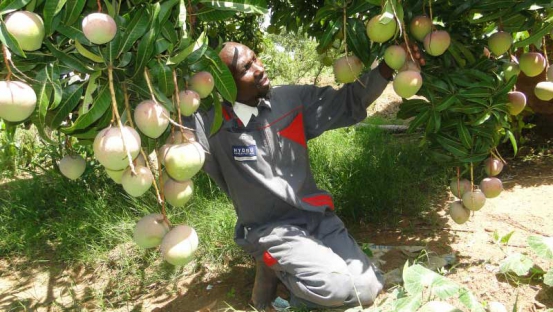
Before establishing his own farm, Boniface Ochieng’ was once hawking fruits and vegetables in a local market to supplement his small income as a fisherman. Tired of hawking fruits, he decided to think big.
“As a fruit hawker I used to make peanuts. I realised I could make more id I grew my own fruits and started selling,” he says. When Smart Harvest visits his three-acre farm in Kwoyo village, Bondo sub-county, it’s a beehive of activity. A handful of traders have lined up to buy fruits and seedlings. Some had come to learn secrets of successful fruit farming.